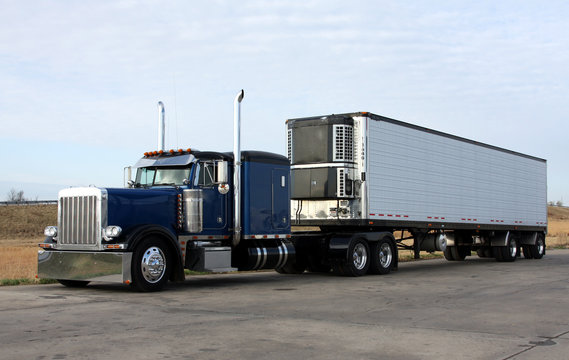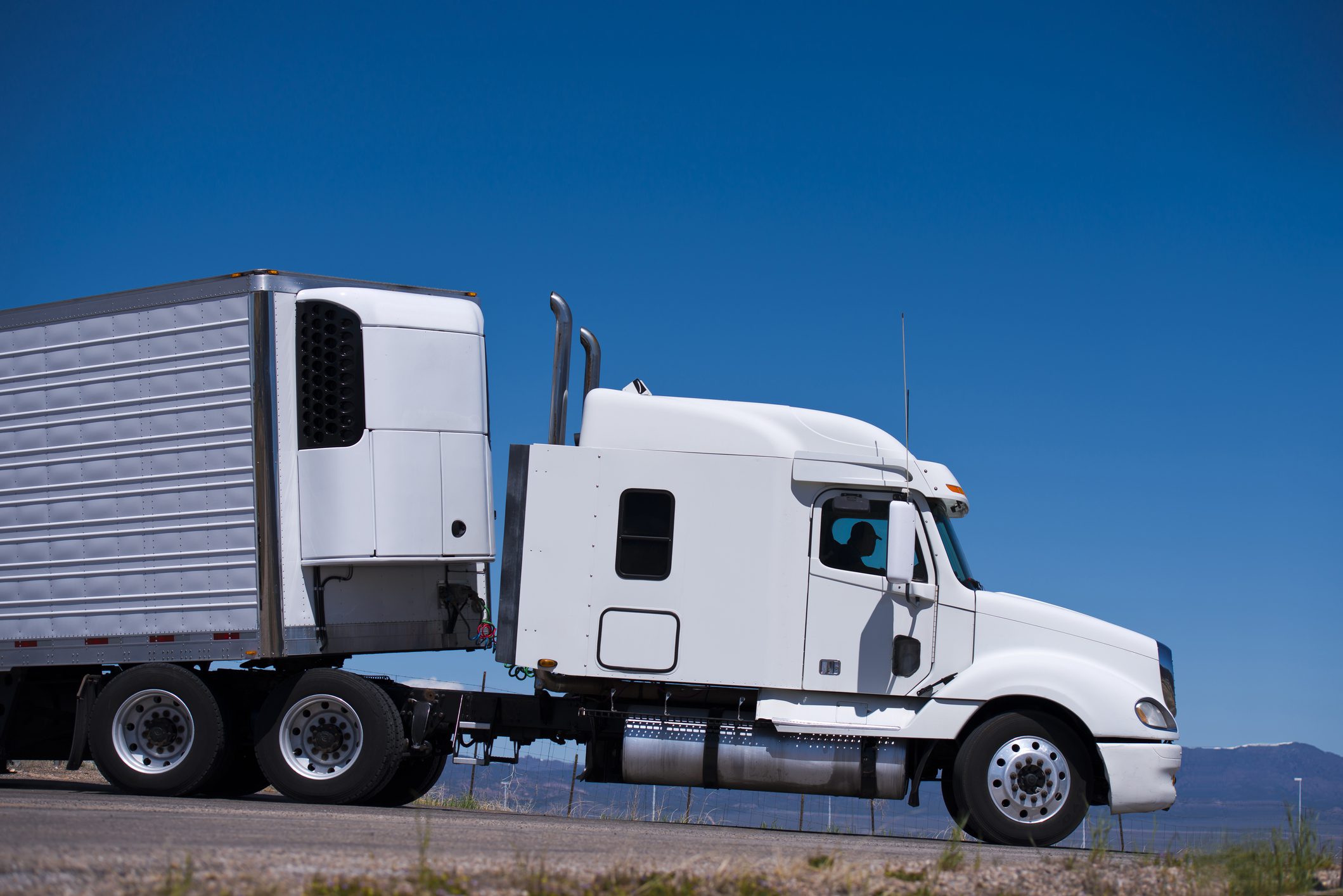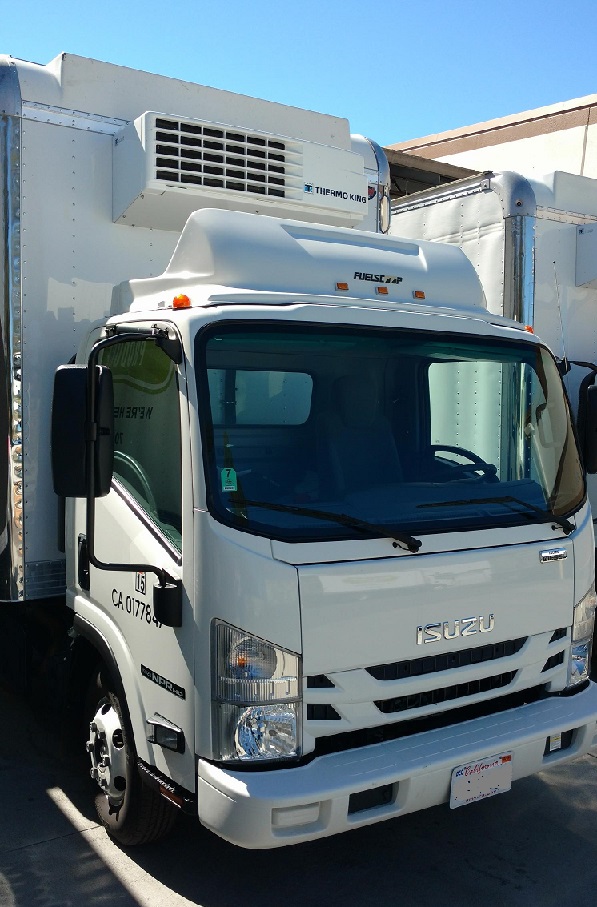Pick Thermo King Truck Refrigeration for Long-Haul Quality
Pick Thermo King Truck Refrigeration for Long-Haul Quality
Blog Article
Top Innovations in Transport Refrigeration: Enhancing Efficiency and Safety
The landscape of transportation refrigeration is undertaking substantial transformation, driven by technologies intended at improving both performance and safety and security. As these technologies proceed to advance, it is essential to discover their effects on operational methods and regulative conformity, motivating a closer assessment of how they improve the future of transportation refrigeration.
Smart Temperature Keeping Track Of Systems
In the world of transport refrigeration, wise temperature level monitoring systems have actually become an important development for making sure the integrity of temperature-sensitive items. These sophisticated systems utilize Net of Points (IoT) modern technology to supply real-time information on temperature level variations, enabling drivers to maintain optimal conditions throughout the supply chain. By continuously tracking the temperature of refrigerated containers and cars, firms can promptly recognize inconsistencies that may compromise product top quality.

Moreover, clever surveillance systems often include automated informs and notices, allowing stakeholders to respond promptly to any kind of possible problems. This positive approach not only reduces the threat of perishing but likewise boosts conformity with regulative requirements governing food security and pharmaceutical transportation.
The assimilation of data analytics within these systems also promotes anticipating upkeep, assisting operators to foresee prospective devices failings before they take place. This ability decreases downtime and maximizes functional performance, eventually causing cost financial savings.
Eco-Friendly Refrigerants
Smart temperature level monitoring systems play a crucial function in preserving product top quality, but the efficiency of transport refrigeration also pivots on the selection of cooling agents used. As ecological concerns rise, the change in the direction of eco-friendly cooling agents has actually become necessary. Typical cooling agents, such as hydrofluorocarbons (HFCs), are infamous for their high International Warming Prospective (GWP), adding dramatically to environment change. On the other hand, emerging alternatives like hydrocarbon-based refrigerants and hydrofluoroolefins (HFOs) existing reduced GWP options, using both performance and sustainability.
These environmentally friendly refrigerants not only minimize environmental impact however likewise line up with international policies focused on eliminating harmful materials. Their fostering can result in improved energy effectiveness, eventually lowering operating expense for transportation refrigeration systems. Moreover, using all-natural cooling agents, such as ammonia and co2, has actually gotten grip because of their outstanding thermodynamic properties and reduced ecological impact.
Purchasing eco-friendly cooling agents is not simply a regulative compliance measure; it represents a critical choice that improves brand name reputation and cultivates client loyalty. thermo king transport refrigeration. By focusing on lasting techniques, firms can contribute to a greener future while ensuring the honesty of delivered products
Advanced Insulation Materials
Making use of sophisticated insulation materials is essential for enhancing transport refrigeration systems, as they dramatically improve power effectiveness and keep constant temperature level control. Standard insulation methods commonly fall brief in preventing thermal transfer, bring about enhanced power consumption and changing temperature levels within cooled areas.
Emerging materials such as vacuum cleaner shielded panels (VIPs) and aerogels provide superior thermal resistance, permitting thinner accounts without endangering efficiency. VIPs, for example, use a vacuum cleaner layer to reduce convective and conductive heat transfer, making them suitable for space-constrained applications. Aerogels, known for their lightweight and permeable structure, supply remarkable insulation while substantially reducing overall system weight.
Additionally, including stage change materials (PCMs) into insulation systems can additionally maintain temperature levels during transit. These materials take in and release thermal energy, successfully buffering versus exterior temperature level variants.
The integration of these advanced insulation materials not only decreases the operational costs connected with energy usage however likewise prolongs the service life of temperature-sensitive products. As the transport refrigeration market continues to develop, the adoption of ingenious insulation innovations will be critical in enhancing both efficiency and safety in cooled transportation.
Automated Course Optimization
The performance of transportation refrigeration systems is considerably improved with automated route optimization, which leverages real-time information and sophisticated algorithms to determine one of the most reliable courses for shipment. By evaluating various factors such other as website traffic patterns, weather, and delivery home windows, these systems can substantially minimize travel time and gas usage.
Automated path optimization minimizes human mistake and subjective decision-making, which can cause ineffectiveness. This innovation makes it possible for fleet managers to allocate sources more effectively, making certain that chilled items maintain their called for temperature level throughout the journey. By maximizing routes, business can also improve customer satisfaction via timely distributions.
Additionally, automated systems can adapt to unanticipated conditions, such as road closures or abrupt web traffic spikes, permitting vibrant rerouting. This flexibility not only shields the stability of temperature-sensitive items but additionally contributes to general operational effectiveness.
Applying automated path optimization can cause substantial expense financial savings while decreasing the carbon impact related to transport. As businesses progressively focus on sustainability, this innovation attracts attention as an important part in modern transport refrigeration, straightening operational goals with environmental duty. Inevitably, automated route optimization represents a substantial advancement in the mission for effectiveness and safety and security in transport refrigeration.

Real-Time Data Analytics
Automated course optimization substantially take advantage of the integration of real-time information analytics, which supplies vital insights right into the efficiency of transport refrigeration systems. By making use of real-time information, transport drivers can keep track of temperature variations and equipment efficiency, making sure that perishable items are preserved within called for specifications throughout transit. This aggressive strategy not only boosts the top quality of the moved products yet likewise minimizes the danger of perishing and loss.

In addition to boosting effectiveness, real-time analytics enhances safety by ensuring Learn More conformity with regulative standards for temperature control. This not only shields public health and wellness but additionally strengthens a company's reputation - thermo king transport refrigeration. As the transportation refrigeration market evolves, the assimilation of real-time data analytics arises as a foundation for driving innovation, sustainability, and functional excellence
Verdict
In verdict, the improvements in transport refrigeration dramatically improve both performance and safety within the industry. Collectively, these innovations stand for a vital development in transport refrigeration, making certain compliance with regulative criteria and promoting a greener future.
The landscape of transport refrigeration is undergoing significant change, driven by developments intended at boosting both effectiveness and safety and security.Smart temperature level surveillance systems play an essential duty in keeping item top quality, yet the performance of transportation refrigeration likewise hinges on the option of refrigerants used. Their adoption can lead to boosted power performance, eventually minimizing operating expenses for transport refrigeration systems. Ultimately, automated course optimization stands for a considerable improvement in the mission for efficiency and safety in transportation refrigeration.
In final thought, the improvements in transport refrigeration significantly boost both performance and security within the industry.
Report this page